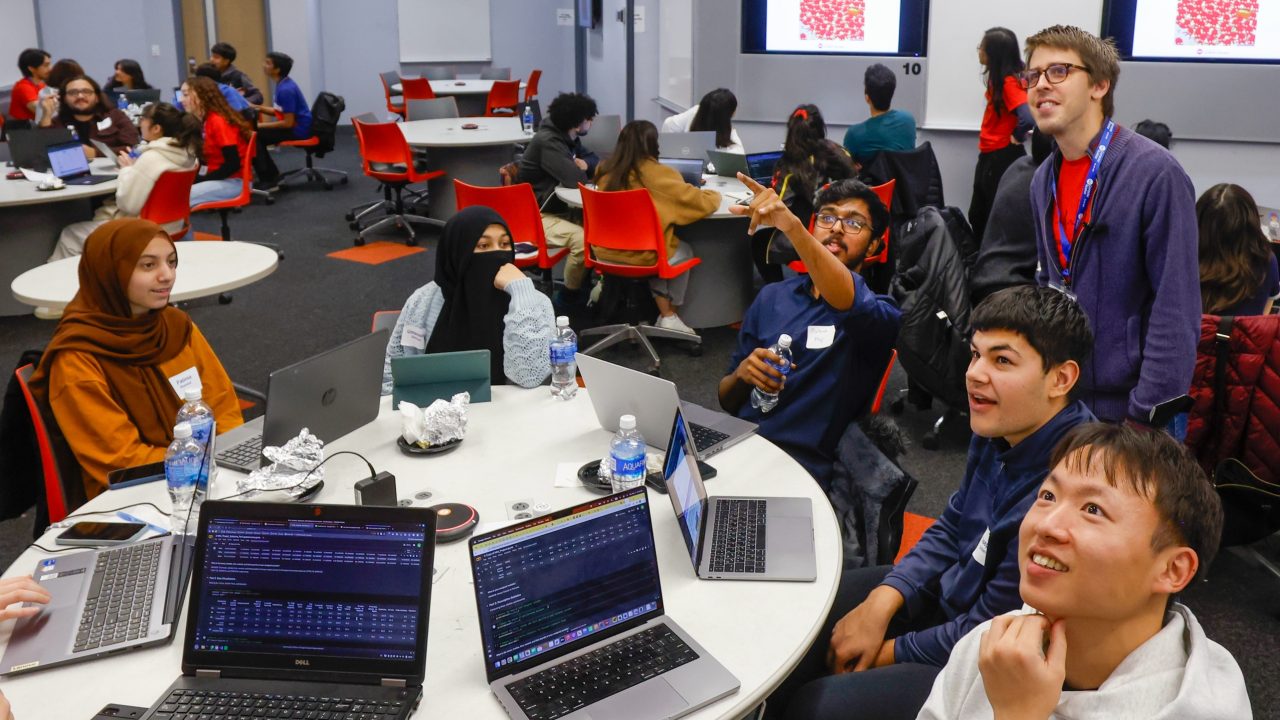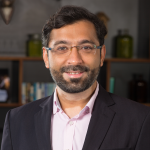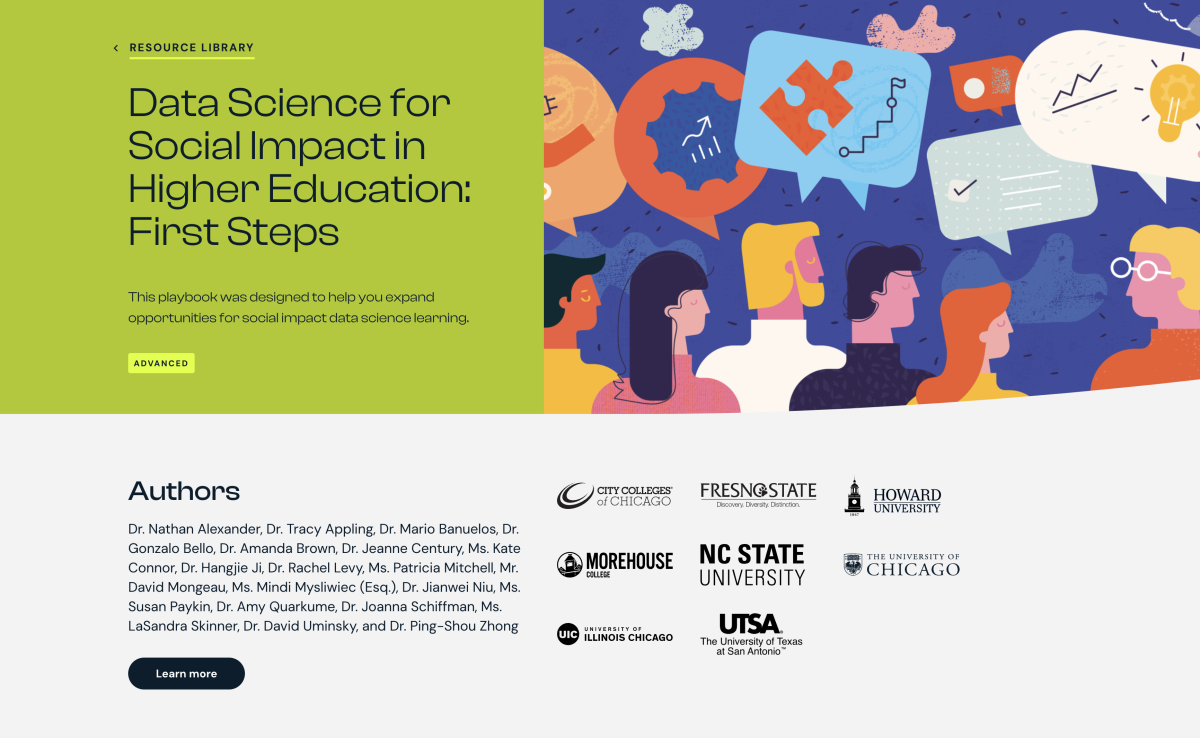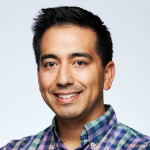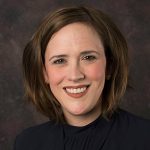Across the United States, from Fresno to Atlanta, and across eight institutions of higher education, young people are exploring new and exciting applications of data science. In the classroom and beyond, through hands-on, project-based learning opportunities, this growing community of students are early adopters in a movement to build the field of data for social impact.
And the students aren’t the only ones getting an education.
Together, this all-star team implemented data science courses, degree programs, and trainings at their respective universities. They learned from one another and supported one another.
Priyank Hirani Director of Capacity Building data.org
The eight institutions—University of Chicago, California State University Fresno, City Colleges of Chicago, Howard University, Morehouse College, North Carolina State University, University of Illinois Chicago, and University of Texas San Antonio—are members of the US branch of data.org’s Capacity Accelerator Network (CAN), a group of like-minded organizations around the world that are committed to building a more diverse pool of talent and training one million purpose-driven data practitioners by 2032.
Leaders from the US CAN, which launched in 2022, hosted a webinar to discuss the release of the Data Science for Social Impact in Higher Education Playbook. The playbook is a comprehensive resource to capture best practices and lessons learned from their work to date and help organizations beyond the network to apply findings to their own unique context.
“Together, this all-star team implemented data science courses, degree programs, and trainings at their respective universities. They learned from one another and supported one another,” said Priyank Hirani, associate director of the Capacity Accelerator Network and host of the webinar.
Hirani was joined in the session by Dr. David Uminsky, executive director of the Data Science Institute at UChicago; Dr. Mario Bañuelos, associate professor and associate chair in the math department at California State University, Fresno; and Kate Connor, professor and Aspen Rising President Fellow at City Colleges of Chicago.
Each of the speakers underscored the importance of partnership and collaboration in advancing and accelerating data for social impact (DSI) in higher education.
“I was able to learn so much and we were able to do more at the University of Chicago—and do it better—because we had such a strong network,” Uminsky said.
From an infrastructure perspective, Uminsky and his team at UChicago have a head start on many educators and institutions looking to scale up data science. The university’s Data Science Institute has grown exponentially in recent years, and data science is on track to become the fifth largest—and one of the most diverse—majors on campus.
Attracting a more diverse group of students to the field, though, is a work in progress. Reflecting on his own time as a math student, Uminsky recalls a homogenous group with limited career options. UChicago is trying to flip that narrative through CAN participation and the Institute’s Summer Lab initiative, an immersive, 10-week paid summer research program that has been a template for other CAN partners.
I was able to learn so much and we were able to do more at the University of Chicago—and do it better—because we had such a strong network.
David Uminsky, Ph.D. Executive Director of UChicago Data Science Institute and Senior Research Associate of Computer Science The University of Chicago
Recent PhD graduates hired by UChicago are developing a deeper understanding of data for social impact, and are now adding teaching capacity for other partners like City Colleges of Chicago. It’s a win-win, giving these early-career professionals meaningful teaching and inclusive learning experience, and allowing other institutions to offer new training and coursework that would otherwise not be possible with their current faculty.
“We just truly did not have the instructional bandwidth and that’s a common challenge in community colleges. In an emerging field it can be difficult to hire because the pay is higher and we just can’t match pay in industry,” said Connor, whose City Colleges created a data science course taught by UChicago preceptors. “In this partnership, we learned, and then we would implement, and then we would discuss and adjust. That kind of grace in curriculum development can be difficult to do in a system that has tight structures around curriculum. It really helped us be successful in implementation.”
Fresno State was also able to add course offerings thanks to their CAN participation, but Bañuelos cautions that you need to build support and enthusiasm across departments for the work to be successful. His proposal for adding a minor, which is currently under consideration by the university, engaged eight different departments and broke down silos so that prerequisites could be included and stacked from across departments.
In this partnership, we learned, and then we would implement, and then we would discuss and adjust. That kind of grace in curriculum development can be difficult to do in a system that has tight structures around curriculum. It really helped us be successful in implementation.
Kate Connor Professor and Aspen Rising President Fellow Truman College, City Colleges of Chicago
“We really wanted it to be an interdisciplinary effort and we wanted it to be accessible to multiple students—not just students in computer science or just students in mathematics,” he said.
Starting with that question—which students have access and which students need support to gain access—is where Connor believes all institutions must begin their journey.
“I would challenge our universities and our colleges to think about who is sitting in the classroom. How are you integrating your students’ ways of knowing and understanding the world into your data science training?” she asked. “That’s how we can create a field that approaches a discipline in a more comprehensive way. If we just have the same folks who always do this work doing the work, we’re not going to have the big social impact we’re hoping for.”
Students can be the best ambassadors for the programs, as long as the content feels relevant and engaging. Uminsky called on the STEM fields to do a better job of attracting students and illustrating career paths that are grounded in social impact and social justice. Students, he said, must be able to see and imagine a future that is financially secure, as well as personally meaningful.
“We need to give people the authentic opportunity to work on problems they care about. We don’t want any data scientists graduating from the University of Chicago unless they’ve worked on a real-world data science problem,” he said.
Through the summer lab and other CAN partner programming, students invited from all eight CAN partner institutions are paired with community-based organizations to tackle social problems like financial inclusion, gender equity, and climate change. They collaborate with network partners and community leaders to understand the challenges faced by different stakeholders, and then co-create a potential solution through data science. Those experiences are reflected in the playbook, where users can explore details on courses and modules, internships and research, events, and activities, partner outreach, and other key elements that may inform their own program development.
The challenges faced by communities—and then explored by purpose-driven data scientists—are diverse and ever-evolving. As the Capacity Accelerator Network evolves in kind, its members are eager to continue sharing their work through mechanisms like innovative programs and resource-rich playbooks to the benefit of colleges, universities, nonprofits, and emerging professionals eager to accelerate social impact.
